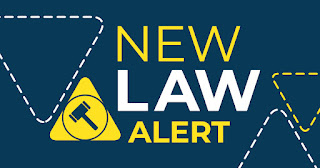On 12/28/2020, the
COVID-19 Emergency Eviction and Foreclosure Prevention Act of 2020 became law.
This law effectively stops all residential foreclosures in NYS until
May 1, 2021, but it does nothing about the borrower's obligation to repay
their loan.
Do you think that makes
sense?
Isn’t that just delaying the
inevitable foreclosure crisis?
Shouldn't something be done about the loan too?
Here is how the law works
– a homeowner needs to submit a hardship declaration to their lender and magic,
no more foreclosure until May.
The Details:
o
Either the court or lender (depending on foreclosure
status) must provide the borrower with a statement explaining the law.
o
To qualify, a borrower must be suffering a
financial hardship including, such as
§ A
significant loss of household income;
§ Increase
in necessary expenses;
§ Childcare
responsibilities;
§ Moving
expenses; and/or
§ Other
circumstances negatively affecting the borrower’s ability to find meaningful
employment.
o Sample hardship declarations will be available on
the Office of Court Administration website.
o
New Foreclosures – If the borrower does
not provide the declaration, the lender is required to file all sorts of
documents to commence a foreclosure proceeding, including:
§ Affidavit
of Service of the Hardship Declaration in English and in the borrower’s primary
language.
§ Affidavit
of Service of RPAPL 1303 and 1304 notices; and
§ Affidavit
of the Petitioner/Petitioner’s agent attesting that the Petitioner or his agent
did not receive a Hardship Declaration from the Borrower.
o
Existing Foreclosures – Paused (stayed)
for at least 60 days to provide the borrower time to complete and submit the
hardship declaration.
o
This also stops foreclosure sales if the
case already was decided by the court in a judgment.
Make no mistake, this
new law does NOT excuse borrowers from paying the mortgage.
So, what is the
point?
Isn’t it misleading borrowers into digging an even bigger
financial hole?
What do you think?
.jpg)















